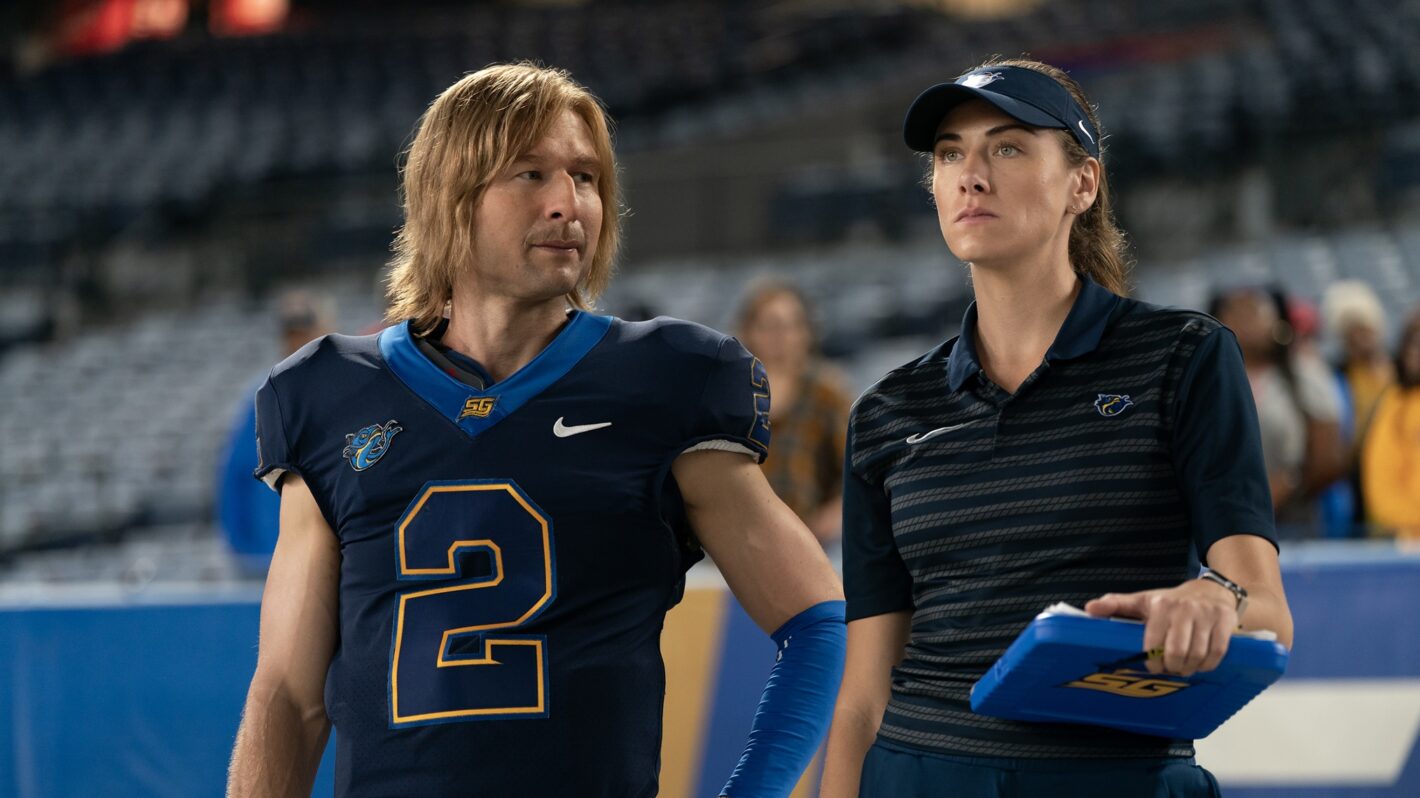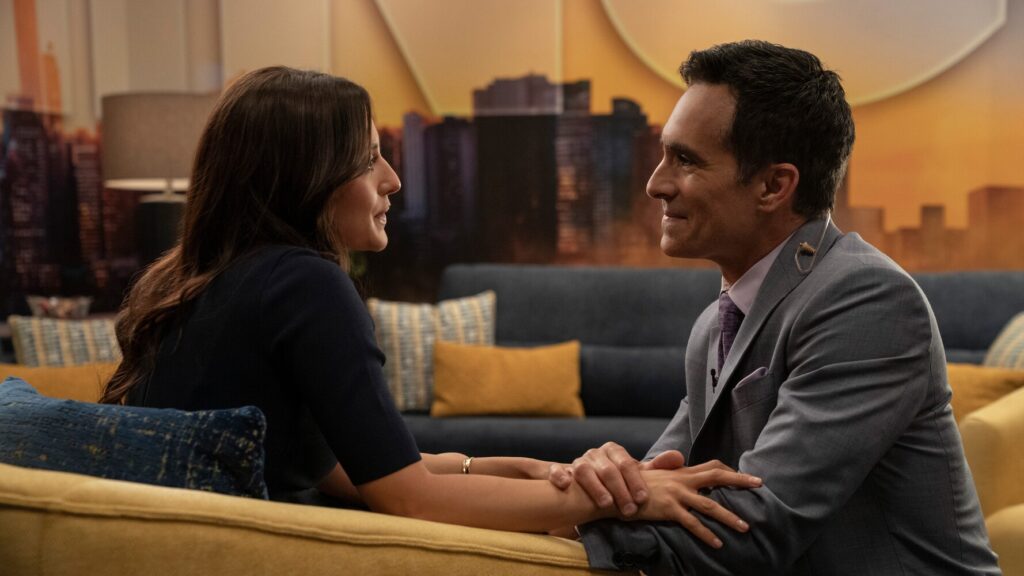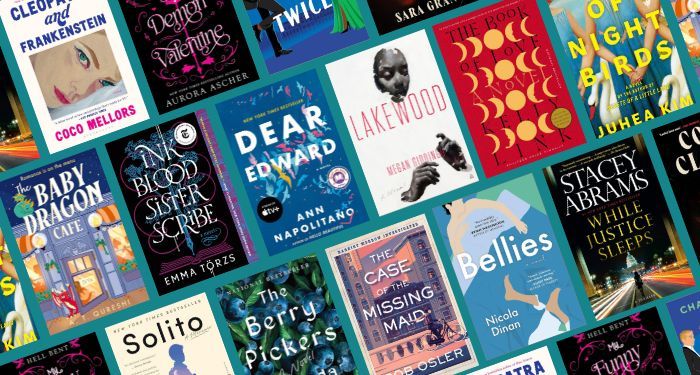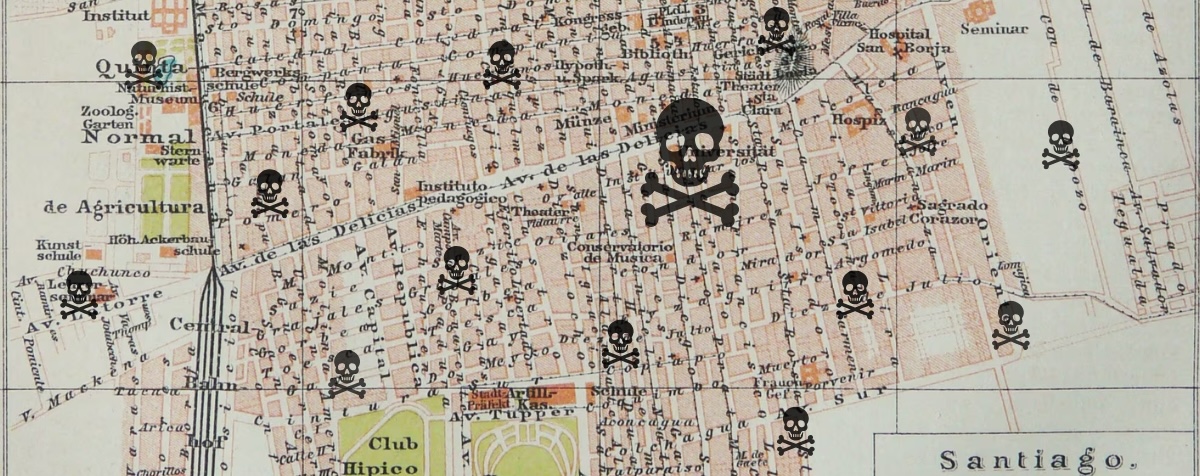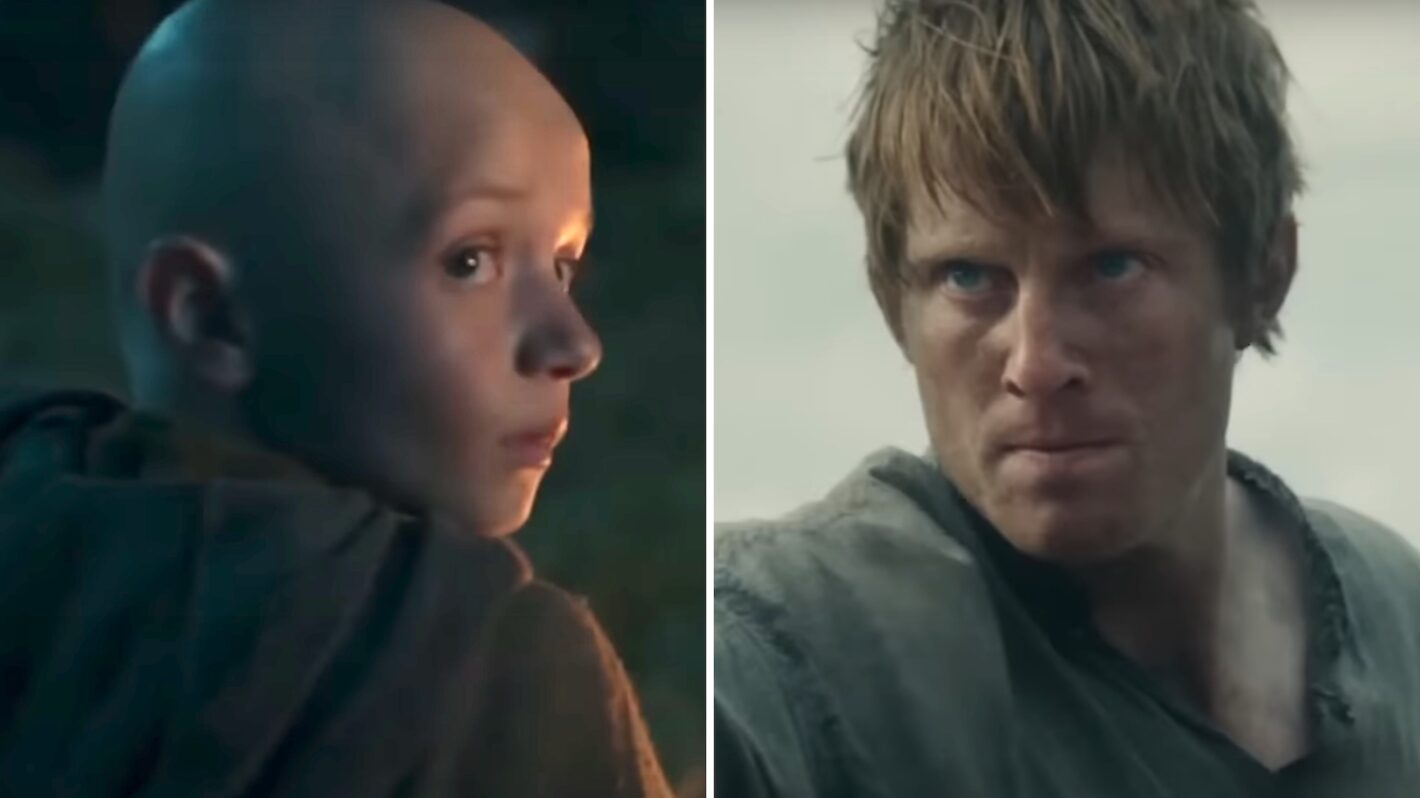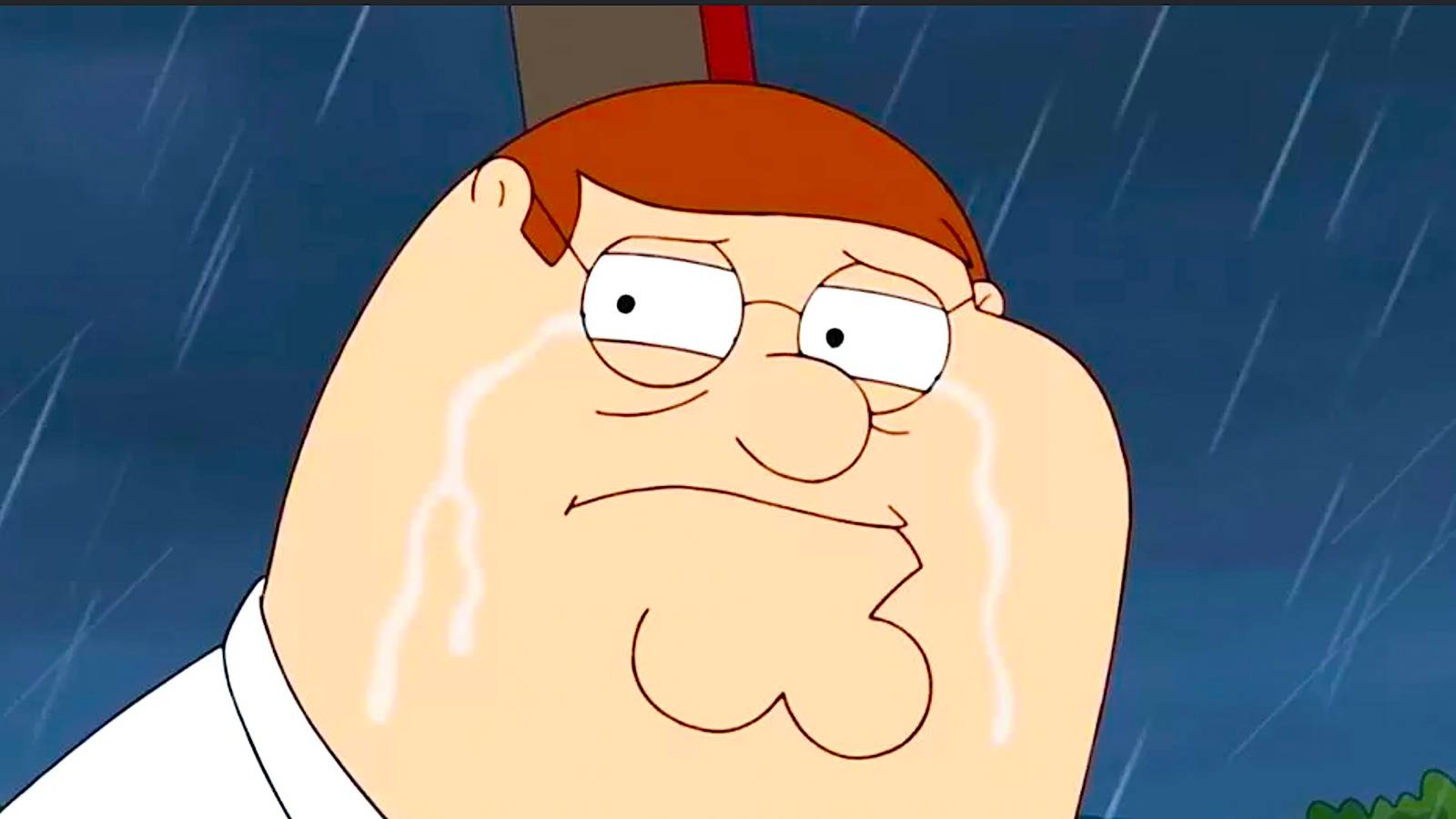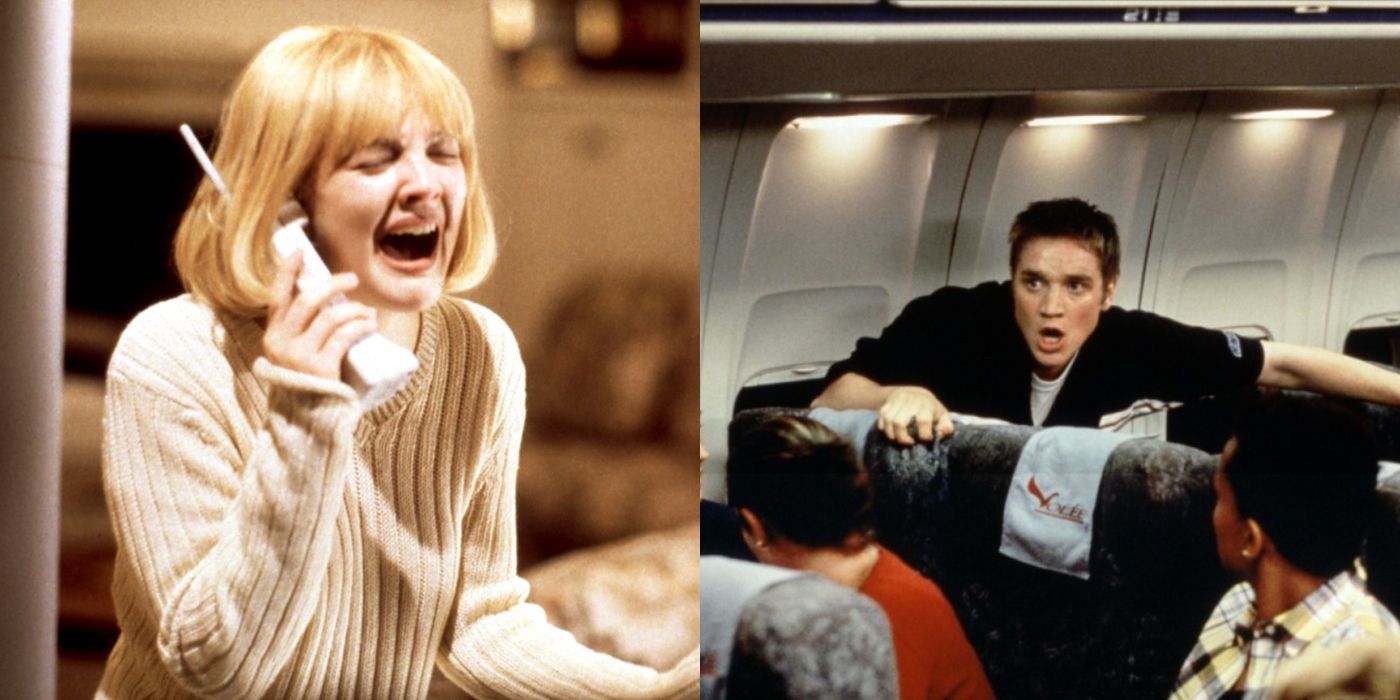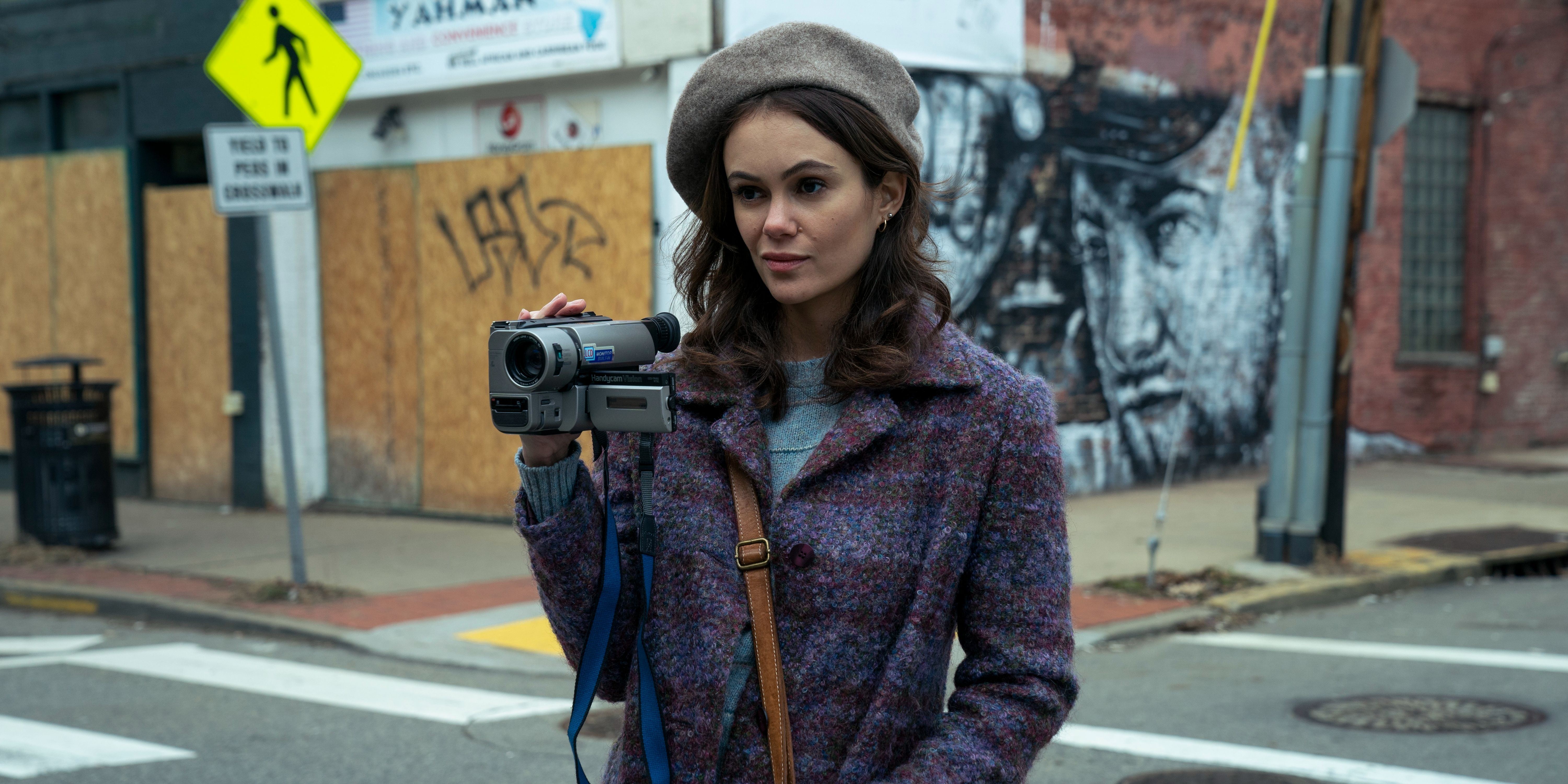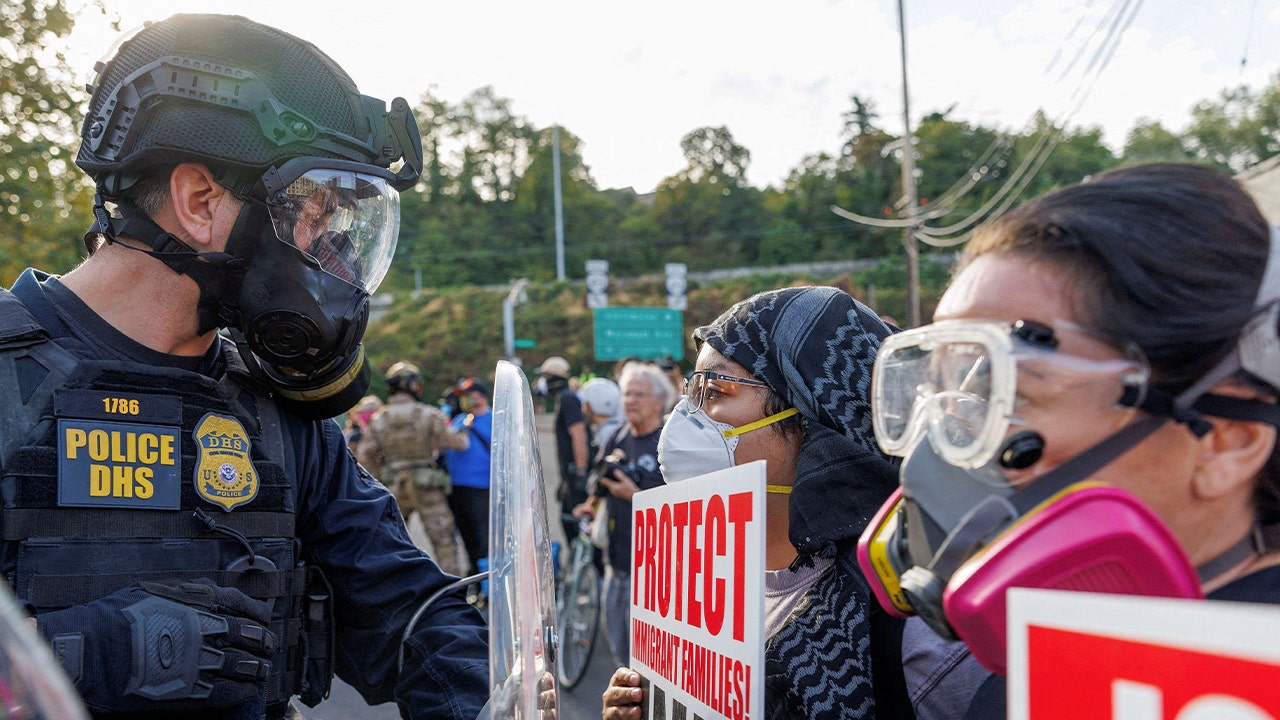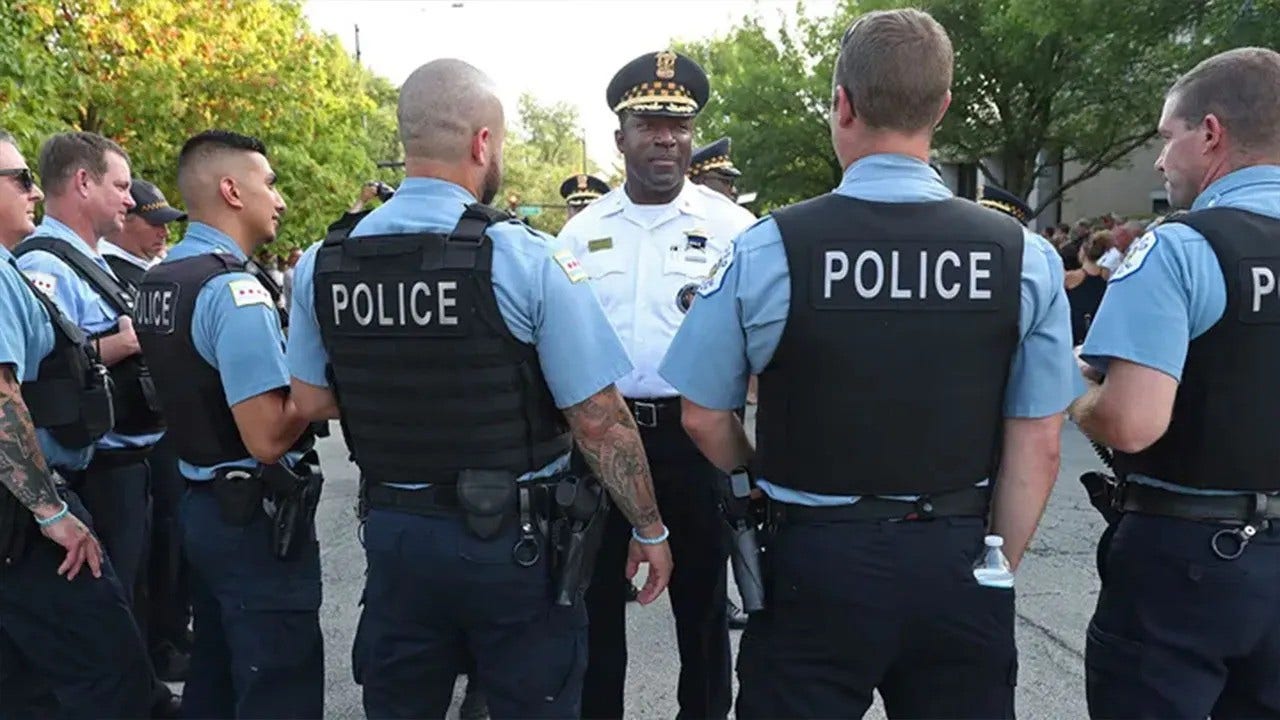Her Top Priority Is to Destroy the Hot Dog Guy
The Eloquence of Hot Dogs by Robyn Ryle
Loretta hit print and sat back with a sigh.
She’d done it. Mission accomplished. She’d solved the problem of the hot dog guy.
The mayor wanted a way to get rid of the wiener vendor once and for all. He’d emailed Loretta’s boss demanding an immediate solution. The hot dog guy wasn’t on-brand for Lanier and they’d spent a lot of money on the marketing firm to come up with that brand. Hot dog guys weren’t a part of it.
Now the problem was solved and all Loretta needed was a cigarette. She deserved a cigarette. She’d earned her cigarette, but, of course, there was no smoking inside the health department where she worked. What kind of example would that set? She could smoke outside as long as she was ten feet away from the building, but people would see her, and it had been suggested that employees of the county health department huddled around the building while they smoked did not make for the best optics.
“Fuck the optics,” Loretta mumbled.
She hauled herself out of her chair and shuffled down the hall to wait beside the one printer they all shared, a sad and ancient device that lived in their break room, like one more hulking and resentful employee.
She was still half an hour away from her lunch break, but she could escape by pretending she had an emergency inspection. There wasn’t really any such thing as an emergency inspection. Even if a customer at a restaurant found a whole nest of cockroaches tucked under their jumbo-size pork tenderloin sandwich, there were still reams of paperwork to be filled out before Loretta ever showed up. Paperwork that took days if not weeks to process. Still, only her boss knew that, and lucky for Loretta, her boss was at some conference in Indianapolis today.
She grabbed the pages off the printer, warm and pleasing in her hand. She turned the sign on her door to “Out of office,” which the boss insisted they all do when they were gone. She shoved the pages into her purse and made a noise that could have passed for a goodbye toward the receptionist out front. Then she got in her car to head home, where she could take off her shoes and her bra and have a cigarette on her couch, where the optics were just fine.
She snapped her seatbelt into place, one in a long list of new rules she’d been forced to surrender to over the course of her life. When she was young, kids roamed free over the landscape of the car interior and eventually curled up in the foot well behind the passenger seat like small animals. Not anymore. That was life. A series of endless surrenders to one change after another.
But not the hot dog guy. Oh, no. This was her victory. Score one for Loretta.
The temperature readings were the key. A stroke of pure bureaucratic brilliance on her part. The specific high-sensitivity type of thermometer required to get those readings was exorbitantly expensive, first off. So the hot dog guy would have to invest in one, and given what he was charging for his hot dogs, it was unlikely he could afford it.
But even if he could, he’d have to take the temperature of the hot dogs in his cart every hour on the hour, recording each reading carefully on a form Loretta had designed expressly for this purpose. This sheet would have to be turned in to her daily.
She tapped her fingers across the steering wheel. Was that enough? Would it satisfy her boss and the mayor who wanted the hot dog situation taken care of ASAP? Should she make it twice daily, instead? If once daily didn’t drive him out of business, she could go for two. It would work. She was sure.
Loretta didn’t know the hot dog guy, though his name was etched onto her brain now. Dan Fortlow. Daniel West Fortlow. He’d filled out his full name on all the health department paperwork in his initial vendor application. She knew his address, a split-level on the Hilltop in one of the subdivisions next to the Catholic school. She’d kissed Carly Chandler in the house next door to his during her junior year of high school, just on a lark. Carly was a horrible kisser and did not take direction well. Now Carly was a secretary out at the college and the mother of four. Loretta hoped for her husband’s sake that Carly’s skills had developed along the way. Or maybe her husband didn’t care about that sort of thing.
Daniel West Fortlow had no idea that Loretta had kissed Carly in the house next door. He probably had no idea who Carly was, let alone Loretta. He hadn’t grown up in Lanier, because if he had, Loretta would have known his name.
What did Daniel West Fortlow look like? She didn’t know. Maybe she could invent another form that required a photo or a copy of his driver’s license? Would that be an abuse of authority? Did she care?
Loretta had never seen the hot dog guy because she didn’t go to the farmer’s market, which was when the hot dog guy set up most of the time. She didn’t walk around town all the time like Rachel and Liz. She didn’t hang out at any of the coffee shops or the bars or go to concerts or movies in the theater where you had to bring your own chair because the old ones had been sent to a special place in Indianapolis to get reupholstered and, years later, had not yet returned.
Loretta didn’t do any of those things because every time she left her house, she could not ignore all that had already been lost. The Corner Market was gone. Some former local news anchor and her B-list reality TV star husband were living in Mr. Knorr’s men’s clothing store now. Nothing in Lanier was the same, so what did any of it matter? The hot dog guy was just another in a long line of transgressions against the perfect state of the world that had existed in Loretta’s childhood, everything since then a slow and inevitable fall from grace as far as Loretta was concerned.
“The mayor has something to prove here,” her boss had told her. “That survey has him all stirred up.”
The stupid sex survey was all anyone in town wanted to talk about, and for that exact reason, Loretta had nothing to say about it. Sex was sex, another bodily function. What was the big deal?
Loretta unlocked the door to her house, closed her eyes, and breathed in deeply. She’d been trying to smoke less inside, but cigarette was still all she could smell. There was zero hint of the expensive new air freshener she’d plugged in last night. “Spring breeze,” the package said, but there was nothing springy or breezy about her house. It was the third air freshener she’d tried, with no success. The house smelled of cigarettes, just like it had when it had been her mother’s house and her grandmother’s before that.
“Better than smelling like cat pee,” Loretta imagined her mother saying.
Cigarette smoke and cats—that would be the brand of the women in Loretta’s family, the number of cats increasing through the generations. Grandma Pat had one. Loretta’s mom had gotten up to three at one point. Loretta had maxed out at five, just before her mother had died, sixteen years ago now.
Loretta had been mere pages away from finishing her dissertation when her mom had gotten sick. She was getting a PhD in folklore, which her mom was convinced was something Loretta had made up. She would have majored in witchcraft if there had been such a thing, but there wasn’t. Folklore was as close as Loretta could get. Witchcraft was her specialty, at least.
Loretta had been deep in the research for her dissertation, exploring the herb lore of Irish midwives in the nineteenth century. She’d dreamed in potions and poultices. She had been so close to being done and she’d had no idea what would come next, but it would not involve going back to Lanier.
Then her mother had found the lump and Loretta was an only child. There was no one else to take care of her. Loretta had packed up three boxes of her belongings, most of them copies of microfiche documents from Irish women’s diaries, and driven across the country, back to Lanier.
Her mom was down to no cats when Loretta had arrived. She’d let them die off one by one with no replacement, as if she were determined to sink into complete and utter loneliness. The first of Loretta’s cats had appeared while her mom was still in the hospital, an orange tabby that was the ugliest cat Loretta had ever seen. Still, she fed him. He was there waiting when she came home from a long day at the hospital watching her mother show more kindness to the nurses and the doctors than she had ever directed at Loretta. The nurses and doctors loved Loretta’s mom. “Aren’t you lucky to have her for a mom?” they said to her, their faces lit up, and Loretta nodded. She was. She was lucky. Of course she was.
Loretta picked up the next cat at the animal shelter the week they sent her mother home to die, the two of them alone in the house except for hospice visits that never lasted long enough. Her mom complained about the cats. She didn’t want them in the room with her. She’d developed an allergy in her illness, her mother claimed. The cats made her sneeze. They hurt her tender skin when they walked across her body.
But when Loretta stood on the other side of her mother’s closed bedroom door, she could hear her whispering to them, sweet nothings about how beautiful and soft they were. She would find them snuggled up with her mother on the bed, her hand still resting on their warm bodies. In those moments, Loretta hated the cats.
Now Gus was the only one of those original cats who was still alive, sixteen years old and feeling every bit of it. Loretta’s friend Tom had brought Gus to her as a kitten one month after her mom had died.
“I don’t want another cat,” Loretta had said. “Get it out of here.”
She had been sad, of course. Her mother was dead. She had no idea what would happen next. Feeding the cats was the only thing that got her out of bed. But one day, standing at her kitchen counter with the cats swirling around her legs and waiting for their treats, she realized that she was relieved. She realized that with her mother gone, she could breathe at last. She couldn’t say that out loud though. Not even to the cats.
Now Loretta plopped down on the couch, her butt, as always, landing right on the place where the cushions had thinned out and the hardwood frame poked through underneath.
“Dammit all to hell,” she said.
She should buy a new couch. She should paint the walls a new color. She should rip up the shag carpet that had been there so long she wasn’t even sure what color it had started out as. But she didn’t. Everything in the house was exactly the same as it had been when her mother died.
Gus wobbled into the room on unsteady feet. He couldn’t reach his back to clean himself anymore so she had to cut the matted fur off every couple of weeks. He’d started peeing in a corner of her bedroom and that meant it was the beginning of the end, but she couldn’t put him down, any more than she could buy a new couch.
“Why do you think you won’t make your house your own?” This was the question her therapist had asked her. This was the question more than one therapist had asked her. She’d been through three of them, hoping that maybe it would help her get her life going again. Every one of them wanted to talk about her mother, but Loretta didn’t have anything to say about that. She wasn’t one of those people, the kind who blamed all their problems on mommy or daddy issues. The nurses and doctors had been right. Loretta was lucky to have her mother and that was that. Nothing more to say.
Gus stopped his unsteady weave to stare at her.
“No one asked you, Gus.” She unhooked her bra and pulled out a cigarette, trying to recapture that moment of joy at besting the hot dog guy. That was how life was though. The good moments never lasted.
Tom came over on Saturday and insisted that Loretta go for a walk with him, instead of sitting at her kitchen table drinking coffee while she smoked one cigarette after another, which was what they usually did together.
“Getting some air will be good for you,” Tom said. He was wearing the bright orange sneakers she’d seen on his feet every time he’d come to visit during the twenty years he lived in New York, and that was some comfort to Loretta. Though if he’d owned the shoes that long, it was fair to say he probably hadn’t done that much walking in them.
“Do you know me?” Loretta squinted at him as he stood on her front step, refusing to come in like a normal human and sit down. “Since when have I cared about what’s good for me?”
“Well, maybe I care,” Tom said. “Anyway, it’s all the rage now. No one has coffee or drinks anymore. Everyone goes for walks together instead. Because of Covid, but now, it’s multitasking and all.”
“I hate it.”
“Do it for me and my belly.” Tom patted the place where the buttons on his shirt bulged.
“Fine.”
Loretta was not going to put on sneakers though. The idea that you’d own a whole separate pair of shoes just for walking was abhorrent. While she was bent over to pull on her garden clogs, Gus slipped out the door.
“You’re too old to go out, Gus!” Loretta yelled. “If you get weak and can’t make it back home, on your own head it will be.”
“Gus is tougher than he looks,” Tom said.
Loretta didn’t think that was true, but she didn’t have the energy to argue. She was already exhausted and they hadn’t even started.
“Let’s walk down Main Street.” Tom waved his hand up the street, like he was Mickey Mouse at Disneyland instead of her best friend inviting her to walk on a street she knew better than the contours of her own face.
“Fine,” Loretta said.
This was how Tom was since he’d moved back from New York with his husband. Lanier was like Disneyland to him. Everything was so delightful. Everything was so easy compared to life in a big city. How long before the shine wore off, Loretta wondered. She’d known Tom since they were babies and the one constant in his life was restlessness. He said he was in Lanier for the duration, but Loretta doubted it. He’d go back to New York or California or Prague or whatever new place took his fancy, leaving her alone in Lanier, again.
“Did you take the survey?” Tom asked.
“No,” Loretta said.
Tom shrugged. “I didn’t think you would.”
They turned onto Main Street where the Corner Market used to be. Now it was an upscale home goods store, only everything in there was painted white. White chairs. White planters. White signs that said “JOY” in faded gray letters. People ate it up.
Loretta ran her fingers across the potted rosemary plant, trimmed into a tight ball, that sat outside the store. She raised her hand to her face and inhaled. She didn’t have anything to say about the sex survey. She had bigger fish to fry. She’d turned in her proposed regulation for the hot dog guy to her boss on Friday. Would the boss go for it? Loretta had worked harder on those five pages than she had on anything she’d ever done at the health department. She’d worked harder on those five pages than she had since her dissertation. She was proud of them, which was pathetic. She was pathetic. There was something satisfying about admitting it.
She was pathetic. There was something satisfying about admitting it.
“Do you remember that book Cindy gave you?” Tom stopped, waiting for the crosswalk light to change.
“What book?”
“Cindy” was what Tom had always called her mother. Never Mrs. Sawyer. Never “Loretta’s mom.” Always Cindy. Loretta had tried it once, calling her mother by her first name.
“Who exactly do you think you are?” her mother had said when Loretta attempted it, that tone in her voice that always made Loretta flinch. Not that she thought her mom was going to hit her. She’d been too old by then. But the tone felt the same as one of her mother’s slaps, like there was a sore place inside Loretta that only her mother’s voice could touch.
“The book about sex,” Tom said. “Remember, we used to pull it out from under your bed and look at it over and over again?”
“That book.” Loretta peered inside the windows of the dentist’s, which was where their elementary school principal had lived and then a lawyer who made the downstairs into his office. “What about that book?”
“Just one of the survey questions made me think of it.”
“Hmm.” How much farther would Tom expect her to walk? She should have asked. No, she should have imposed some limits. Twenty minutes. And no route that went down to the river, because that would involve going uphill on the way back. Loretta did not go uphill.
“It was this question about how you first learned about sex and did you have sex education, and all I could think of was Cindy and that book and how it just showed up in your room one day.” Tom stopped to study a for sale sign in front of the Waxman funeral parlor, the last one left downtown. He was obsessed with real estate. Maybe it was a New York thing.
“It didn’t just show up.” Loretta wondered if she had enough time while they were stopped to smoke a cigarette. “There was a note inside that said if I had any questions, I should never be afraid to ask her.”
“Right.” Tom laughed. “Like you were going to do that.”
“I could have though.” She resisted the urge to groan when Tom started walking again. “It was better than what most parents did though, wasn’t it? What did Marge and Gary tell you? Nothing.”
“Oh, please, do not make me imagine a sex talk from Marge and Gary.” Tom grabbed his stomach and made a gagging noise. “The horror.”
“Right, well the book was better than that.” Loretta had always thought Tom’s mother, Marge, was a beauty. Her memory of Gary was fuzzy. He’d moved to New York when they divorced, taking Tom with him for most of high school, stealing her best friend away. Gary she could take or leave.
“Was it though?” Tom waved at someone across the street. Loretta didn’t recognize them. One of Tom’s new friends. “All I remember was that it described an orgasm as like a sneeze. Like, o-kay? I guess?”
Loretta remembered that too. And the cartoonish drawings of the naked women and men. The women were all fat and the men entirely too hairy. Had she half expected that she would sneeze the first time she had an orgasm? Maybe.
“It was a good book.” Loretta stared across the street at the building that had been turned into upscale apartments she could never afford and the soda fountain that was now a pizza place. This was why she didn’t go for walks. She knew the town had changed. She didn’t need to have it flaunted in her face. “I would’ve given it to my kid.”
“Sure,” Tom said.
“I’m going home.” Loretta stopped short in the street. Fuck this walk.
“You don’t want to see where they’re putting in the new brewery?”
“I do not.” She could feel where her clogs had already rubbed the back of her ankles raw, the pain a satisfying confirmation of what a bad idea it was to walk. And what would Gus be doing, now? Meowing to get back in. Shivering in his old-cat bones.
“Okay.” Tom smoothed his hand over his stomach, which did nothing for the bulging buttons. “I’ll see you around.”
“Yeah, yeah.” Loretta turned off Main Street as soon as she could, into one of the alleys, which were the one part of town that remained unchanged.
“So that’s all sorted, then,” Loretta said. She shifted around in the low, backless chair in the therapist’s office, trying in vain to get comfortable. The therapist—Loretta had forgotten this one’s name—tilted her head and watched.
The therapist didn’t give a damn that Loretta’s chair was uncomfortable. It was intentional, for all Loretta knew. What happened to the couches you always saw on TV and in the movies? Loretta was being cheated out of the comfortable couch every other therapist seemed to have. If there was a comfortable couch here, she could fall asleep on it. Who would stop her? It was “her time.” That’s what the therapists were always telling her.
“Good,” the therapist said. This one was young and one half of her hair was shaved, the other half long.
Loretta had just finished telling her the saga of the hot dog guy. She could talk about that for hours and she always struggled to fill the pointed silence during therapy. The boss was running her proposal by the county lawyer, but Loretta was optimistic. Her last thoughts as she drifted off to sleep at night were to imagine the hot dog guy’s face as she informed him of the new regulations. Technically, it would probably not be Loretta who would tell the hot dog guy, but in her fantasy, it was.
“What else is going on?” the therapist asked.
Loretta tried crossing her legs, but that didn’t help. The chair really was horrible. “I had this stupid conversation with Tom the other day.”
“Tom is . . . ?”
“A friend.” Her best friend, but she was too old to call him that.
“What did you and Tom talk about?” the therapist asked.
“This book my mom gave me when I was little,” Loretta said. “A sex book.”
The therapist raised one eyebrow and waited.
“You know, a book that explained the facts of life.” Loretta shrugged and let her eyes roam around the room, looking at anything but the face of the therapist. She wished there were a window. A window gave you a legitimate place to look. How long could she reasonably stare at a painting of clouds though? Not long enough. “I thought it was a good idea, that Mom gave me that book. I mean, a lot of other parents didn’t say anything. And it’s not like there was any sex education in school back then. I mean, there probably isn’t now either. But, then? I think we watched some video about periods and body odor and that was it.”
The therapist’s head moved in the tiniest of nods.
“So, I felt like Mom was ahead of the game, but Tom didn’t think so. I don’t know. He was awfully interested in the book at the time.” She pictured Tom, sitting on her bedroom floor, flipping through the pages of the book and drinking root beer, which her mother had bought just for him. Mom had loved Tom. She bought his favorite root beer and barbecue chips, the smell of which made Loretta gag, but no one cared. Her mom said more than once that Loretta could do worse than to marry Tom. That was before she knew he was gay.
“Of course, the book didn’t say anything about gay sex,” Loretta added.
“You don’t talk about your mom much,” the therapist said.
Oh, here we go. “She was a good mom,” Loretta said. “I had a good childhood. It couldn’t have been easy for her, being a single mother.”
“And you gave up grad school to take care of her, right?” The therapist flipped through her notes.
Loretta forgot she’d told this one about that. In the intake session. She’d talked to so many therapists, it was hard to keep track of what she’d told to who.
“Yeah, I had to.” Loretta wondered if the therapist would care if she sat on the floor. It had to be better than the chair. Maybe she could lie down. Take a nap. That would be a more productive use of her time than this.
“That must have been hard though,” the therapist said.
Loretta shrugged. When her mother had been sick at the end and it was just the two of them, Loretta realized how finely attuned she was to the way her mother’s emotions sequenced, over and over again. Panic first. Her mother hadn’t been ready to die. She hadn’t said it, but Loretta knew. That stuff people said about mothers and daughters—it was true. She could feel what her mother felt. She’d always been able to, whether she wanted to or not, so she knew her mother was panicked.
She’d reach out to comfort her mom. To touch her hand or smooth her hair. “I know it’s hard,” she had said to her once.
Then like a switch had been flipped, the panic disappeared, replaced by rage. “It’s not hard,” her mother had said, her voice sharp. “Why would you say that?”
“I don’t know, Mom! Maybe because you’re dying!” That was what Loretta wanted to say, but she didn’t. She had been too scared to talk back to her mother, even in her forties.
Her mom’s rage had flared hot for a moment and then it faded to silence, a simmering under the surface. Was that better or worse? Loretta had spent a lot of time contemplating that as her mother slept or stared out the window in stony silence. She’d wished for a sibling in those moments, someone else to be on the inside of this with her. She couldn’t explain it to anyone else. She’d tried.
“But your mom’s so nice,” people would say. “So sweet.” Even Tom would say that. And it was true. It absolutely was. It was Loretta’s mother who took Aunt Gerdie to the grocery when she couldn’t drive anymore. It was Loretta’s mother who watched her young neighbor’s baby sometimes while she ran errands, even if her mother complained and told everyone the woman was really sneaking off to fool around with her ex, who was clearly no good for her.
Everyone loved Mom. And Mom loved Loretta.
“Do you miss her?” the therapist asked. “Your mom?”
“Of course,” Loretta said. “Of course I miss her. What kind of daughter wouldn’t miss her mother?”
“Lots of kinds,” the therapist said.
Well, not Loretta.
Loretta kept going to one therapist after another mostly because it was free. At least five sessions a year were, which was all she was ever going to do, anyway. That was what their health insurance covered or at least that’s what Loretta had thought. When she got a bill for the three sessions she’d been to and it was over three hundred dollars, she was understandably enraged. There was no way she was going to pay for therapy that didn’t even work.
“What the hell is this?” she emailed the human resources person.
Loretta sat at her desk, refreshing her inbox every minute as she waited for a response. She was so focused on the screen and her rage that she didn’t notice her boss until he knocked on the doorframe.
“There’s a glitch,” the boss said, one foot out of Loretta’s office and one foot in, as if he wanted to be ready to flee.
“I know.” Loretta gestured at the therapy bill on her desk. “Damn insurance.”
“What? No, not that.” The boss jangled the keys in his pocket. “The hot dog guy. There’s a glitch there.”
The county lawyer was worried that the excessive number of temperature readings required by the new regulation might set them up for a harassment suit, the boss explained. Discrimination at the very least.
“Discrimination against hot dog vendors? Are you kidding me?” Loretta said. Her voice was loud enough to make the boss glance nervously out the door.
He laughed and held his hands up as if fending off an attack. “Don’t kill the messenger.”
“So what now?” Loretta glared at the bill on her desk. “He just goes on selling his hot dogs full of rat hair, unchecked? Putting the public at risk with his mystery meat?”
“I admire your passion, Loretta, but—,” the boss started to say.
Passion? Her passion? She didn’t give a shit about the hot dog guy. He was just another crappy thing in her crappy job and crappier life. But she’d spent time and effort on that regulation. It had been satisfying to think that now she’d be the one making changes in Lanier. There were no hot dog carts when she was growing up and there would be none now.
There were no hot dog carts when she was growing up and there would be none now.
Loretta’s computer made the swoopy noise that indicated a new email. She leaned forward to read the response from HR.
“It’s not dead in the water,” the boss was saying. “There just might have to be some tweaks.”
“You’ve got to be kidding me,” Loretta grumbled.
The HR person was sorry to inform Loretta that her latest therapist was, in fact, out of network, which was why her fees hadn’t been covered. This despite the fact that Loretta had asked the therapist woman explicitly if she was in her network.
“Oh, yes, yes,” the therapist had assured her. “Of course.”
It was all too much. Loretta crumpled the therapy bill into a tiny ball and slammed it into the trash can beside her desk.
“Fuck this,” Loretta said.
“Now, really.” The boss took a step backward. “No need for profanity, Loretta.”
“Whatever,” Loretta mumbled.
That was all on Wednesday, and from there, the rest of the week got worse and worse. Gus threw up twice on the couch and then once across her bedspread. Her drier stopped working, which meant she had to hang the vomit-covered bedspread out in the backyard, where a bird managed to poop on it, so she had to wash it all over again. She tried to call the therapist to talk about the whole insurance situation, but every time she dialed the number, it rang and rang. Loretta remembered there was a receptionist in the building there every now and then, but apparently, she just worked when she felt like it and wouldn’t that be nice. Maybe Loretta should work just when she felt like it. How would that be?
She called Tom to complain, but he was at some conference in Florida and didn’t have time to talk. When she woke up Saturday morning, Gus wasn’t in his usual place at the end of her bed. She had to search the whole house for an hour before she found him curled up on a towel that had fallen behind the couch. When she shook his bag of treats to lure him out, he barely lifted his head. Maybe he was just cold. Or tired. Maybe he was dying. She leaned over the back of the couch, talking to him in her best Gus voice, but his ears barely twitched.
“Fuck it, Gus,” she said at last. “You can’t leave me now.”
He answered with a tiny meow, so weak his voice gave out halfway through.
She sat back on the sofa, the springs poking her in the same place they always did. She picked up her phone to see if she’d missed Tom’s call. Nothing. She couldn’t stay in the house another minute with Gus dying behind the couch.
She glanced at the time on her phone. Just past nine in the morning. The farmer’s market would be open now.
She went upstairs and pulled on the previous day’s work clothes. They were clean enough. “Don’t die while I’m gone,” she called to Gus as she went out the door.
On Main Street, she could see the big flags they put out for the farmer’s market from three blocks away. Why did they need flags to tell people there was a farmer’s market? You either went because you needed zucchini, or you didn’t. When had the farmer’s market become a big, fancy tourist attraction, with activities for the kids and a petting zoo and food trucks?
And a hot dog cart. Don’t forget the hot dog cart, even if he wasn’t officially a part of the farmer’s market. Loretta could smell the salty, sharp scent of the hot dogs long before she found the cart. The aroma hit her somewhere beneath her belly button with the memories of backyard barbecues and trips to the ballpark and the beans and weenies that Grandma Pat would make her sometimes when it was just the two of them.
Nostalgic crap. She would not let herself be distracted.
When she spotted it at last, the hot dog cart was smaller than she thought it would be. Really no bigger than a grocery cart. It was yellow and orange, with a cartoon wiener dog painted on the side and a yellow and orange umbrella to match.
She crossed her arms tight across her chest and waited for the woman in front of her, who was buying a hot dog for herself and a little boy who bounced around her with a balloon that kept hitting Loretta in the face.
“Sorry, sorry,” the woman repeated.
“It’s fine,” Loretta said.
The little boy could not decide if he wanted ketchup or mustard or both on his hot dog. “What does it matter?” Loretta wanted to scream at the kid but did not. She used the opportunity instead to study the hot dog guy’s face.
Daniel West Fortlow. He was in his forties. Younger than Loretta expected. And thinner. Surely a guy who sold hot dogs should be a little on the chubby side. Dan Fortlow was not. He looked like the unremarkable guy in an ’80s cover band, not the singer or the lead guitarist. The bass player who stood at the back, staring at his guitar through the whole set so that no one remembered his face afterward.
“There you go, young man,” Dan Fortlow said as he finally handed the kid his hot dog.
He was the kind of guy who called kids “young man.” Loretta focused on how annoying this was to distract herself from Dan Fortlow’s smile, which, unlike the rest of him, was impossible to forget.
“What can I get for you this fine afternoon?” he asked Loretta when the woman and her son finally moved on.
“You’re ruining my life,” Loretta said. This was not what she’d rehearsed in her head. It was just what came out.
The smile on Dan Fortlow’s face disappeared like it had been wiped clean. He blinked at Loretta. “I’m ruining your life with hot dogs?”
“Yes,” Loretta said.
Dan Fortlow frowned. “I didn’t know that was possible.” He wiped a smear of ketchup off the top of the cart. “I guess you’ll have to explain.”
“Why are you doing this?” Loretta planted her hands on the top of his cart and then was knocked off balance when it rocked. That had to be a violation of some sort. So unsafe. “No one wants your stupid hot dogs.”
Even as she said this, her mouth was watering at the smell wafting out of the cart. She remembered from his application that he made his own pickle relish. Baked his own buns. But that was not important. That was not the point.
Dan Fortlow tilted his head and studied Loretta. “Do you want a hot dog?” He flexed one of his hands, which was covered with a clear plastic glove, as per health code regulations. “On the house?”
“No.” Loretta glanced toward the farmer’s market, where people were standing in little clumps talking to each other. Some of them sat at picnic tables eating their hot dogs. She saw Liz and Charlie at a table with Rachel. Did they have hot dogs? Traitors.
“Okay.” Dan Fortlow pursed his lips and stuck his hands in his pockets. “What do you want?”
Loretta surveyed the booths and tables of the farmer’s market around them. What did she want?
Mom had gone to the farmer’s market every Saturday starting in late June, on a quest to get the first tomatoes of the season. Mom had loved tomatoes. She craved them all year round. Every year she’d bought a bag some farmer had sworn up and down were homegrown, but Mom knew they were not. It was too early for homegrown tomatoes. The tomatoes were too pretty. Too mushy. Too tasteless. Mom would spend the next few days railing at the duplicitousness of it all. The betrayal of those first tomatoes seemed to erase all her joy when the truly homegrown tomatoes arrived. Or maybe that was just how Loretta remembered it.
Loretta stared up at the inside of Dan Fortlow’s umbrella, glowing orange and yellow. It felt warm under there. Safe. Contained.
“I want things to be the way they used to be,” Loretta said. She closed her eyes and felt the heat off the cart, trapped under the umbrella. “I’m tired of everything changing all the time.”
“Man, oh, man,” Dan Fortlow said. “No kidding. Slow down, already. Right?”
Loretta nodded.
She felt so alone all the time. She always had, but since Mom had died, the loneliness was like a pulsing under her skin. It itched. It stung. She wanted it to stop.
She remembered the last picnic she’d been to. Right after she’d come home to Lanier. A church event of some sort. Mom had still been well enough to go, but Loretta had slept in and made Mom late. Which meant they’d arrived on time instead of twenty minutes early, like Mom required.
Loretta had driven them to the church because Mom had been too weak to walk. “I’m sorry, Mom,” she’d said in the car.
Nothing. No response. Mom had stared straight ahead, so that all Loretta could see was that familiar profile.
“I love you,” Loretta added.
Mom turned her head toward the window, her lips shut tight. Mom didn’t speak to Loretta at the picnic. Didn’t speak to her again until the next morning, when Loretta came down to find her at the breakfast table, bright and cheery and going on about Susan Black’s daughter, who was getting divorced.
Loretta stared at Dan Fortlow. “A hot dog is a simple pleasure,” he’d written in his application. “The food of our childhood, easy to eat, cupped snugly in the palm of your hand.”
Who could be so fucking eloquent about hot dogs?
“I have chips, too,” Dan Fortlow said. He pulled a big plastic bag of individual chip bags up and shook it like a weird hot dog Santa Claus. “I like the maple barbecue flavor.”
“Yes, please,” Loretta whispered. “And a hot dog. Extra ketchup.”





























